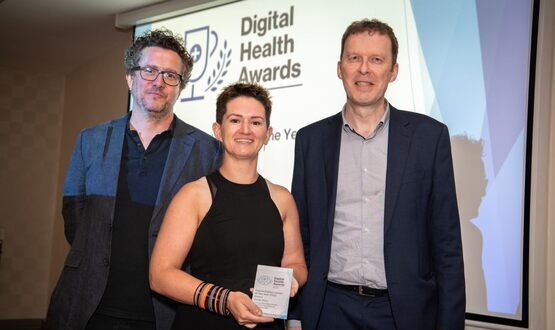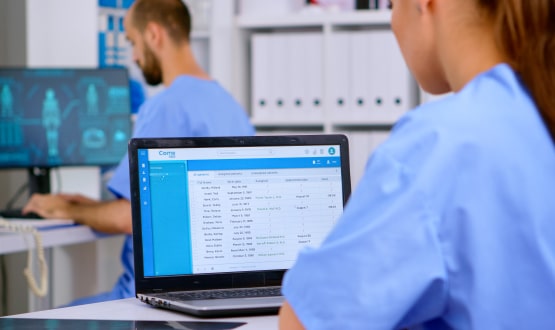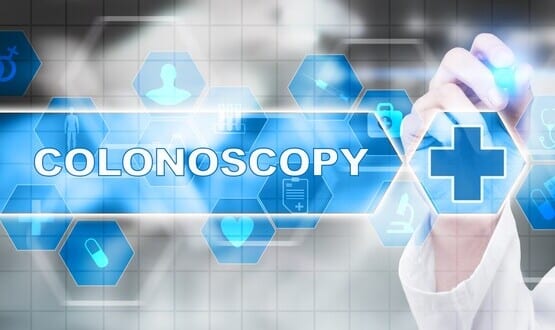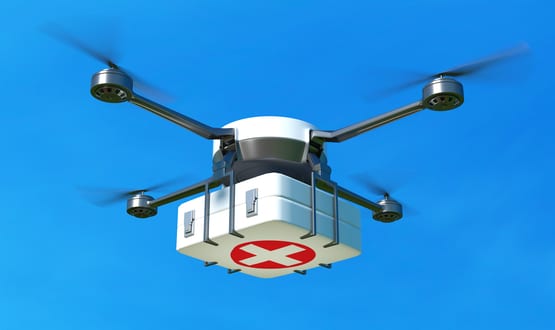Digital Health Awards 2022 winner profile: Sarah Hart
- 16 August 2022

The next profile on our Digital Health Awards 2022 winners concentrates on Sarah Hart, who was named Future Digital Leader of the Year. The urology speciality doctor at University Hospitals of Morecambe Bay discusses her career path that led to the award, how it felt to win and her digital aims for the future within her role and organisation.
What is your current role?
My current role is split 40% digital clinical lead and 60% urology speciality doctor. In the digital clinical lead role, I act as the interface between the staff on the shopfloor and the CCIO and digital team.
How did you get to where you are now?
Digitally, for the last decade I have been a bit of a disruptor, but not in the truest sense of the word. If I hear colleagues moaning about a digital process, praising a system, or struggling with something new, I have actively sought out solutions, generated plans and presented them to the relevant boards for feedback or approval.
The whole aim is knowing that if we can make life easier for the clinicians, we can help make things safer for our patients.
Around two years ago I was reading some papers and found the government had issued the requirement for the NHS to rid itself of outdated tech such as fax machines and pagers.
Knowing how integral pagers were to the day-to-day running of my trust, I set upon writing a proposal which included scoping documents, procurement and a draft business case which I then presented to our CCIO and CIO and the rest cascaded from there.
Knowing the project was going to be very big, I secured a 12-month job a couple of days per week to lead on the project which successfully launched in May 2022, and my contract was extended in the guise of ‘digital clinical lead’.
How did it feel to win Future Digital Leader of the Year?
Having read the information about the other nominees and social-media stalked them, I attended the gala dinner with zero expectation – what the other shortlisted women had achieved was quite inspiring, so I was all-set to be happily applauding one of them.
I was of course pleasantly surprised when my name was called out and received such a confidence boost off the back of it.
What is the most challenging part of your role?
Certainly changing people’s views on digital is a challenge. Some people’s expectations of what digital can do are unrealistic within the financial constraints of NHS life, while others are simply either afraid of, or resistant to change.
The data which can be generated through various digital initiatives (such as my Bye Bye Bleep project) however can be a big influencer and when used and presented properly has been an asset in engaging with even the most tech-averse people.
Within your organisation, what is the most significant digital achievement of the past 12 months?
Moving our maternity services over to Badgernet was certainly a big achievement in terms of ensuring safety and continuity of care for our pregnant population, however Bye Bye Bleep is likely the initiative which will generate the most unexpected change.
Already data is shaping staffing levels, provision of services such as phlebotomy and interspeciality reviews, providing accountability on a level which traditional pagers never could, and generating data which can reduce risk for our patients.
Such a seemingly simple communication tool being able to impact on so many different elements of the way we care for our patients is something I find so mind-blowing and exciting about digital healthcare when it’s done well, and not just doing digital ‘because it’s there’.
What is the largest barrier to achieving digital transformation?
Finance and a lack of understanding of some executives of the benefits of digital. Unfortunately, setting out on a digital transformation project generally means new hardware is needed, and this initial cost is understandably a turn-off for many board-level investment groups.
This short-sightedness is something which needs addressing. Future-proofing the hardware the NHS invests in and making sure the software is contemporary enough to ‘talk’ programme-to-programme if needed is ultimately what will save the NHS money in the longer term. Trusts working as silos does not help.
What do you hope to digitally achieve within your role and organisation over the next 12 months?
I want to expand the Bye Bye Bleep project to include allied health professionals and pharmacists and enable as much as possible on the handhelds. Feedback from the current workforce is split – a minority like to work on desktops, but a majority prefer their handheld.
They live their life off their handhelds (many stating they can type faster on a phone than a standard keyboard) and it’s almost a backward step for them when they cross the threshold of the hospital for them to revert to working off a desktop/LoW [laptops on wheels] or CoW [computers on wheels].
I want to see if I can work with my local information governance team to see how ‘bring your own device’ could be utilised but I am aware that even the national guidelines here are maybe not as contemporary as they could be.
I’d very much like to work with NHS Digital (or at a similar level) in developing any guidelines around mobile device tech and its associated governance issues.
This is the fourth profile piece on the Digital Health Awards 2022 winners. You can find out who scooped each award here.




